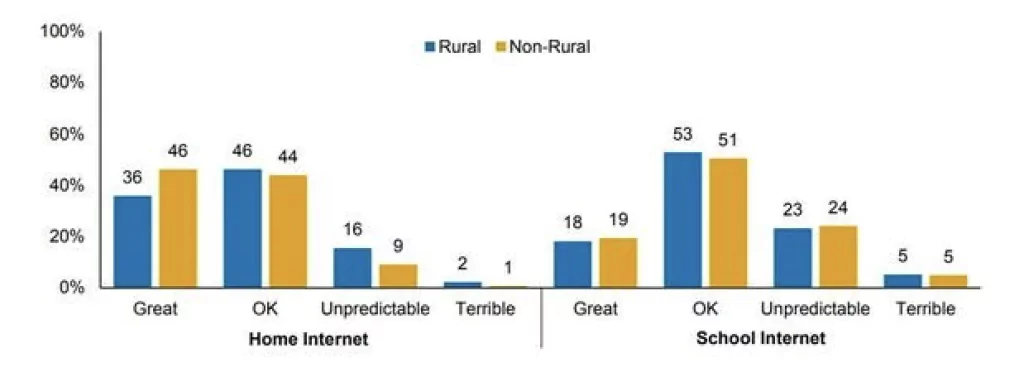
As reported by Ines Kagubare from thehill.com, colleges in the United States are witnessing a surge in technology majors, with a 23% increase in students choosing “Computer and Information Sciences and Support Services” from 2018 to 2022, according to the National Student Clearinghouse Research Center. However, rural students are not keeping pace with this trend due to the digital divide and lack of access to technology education.

✅ AI Essay Writer ✅ AI Detector ✅ Plagchecker ✅ Paraphraser
✅ Summarizer ✅ Citation Generator
Key Takeaways:
- The number of technology majors is increasing, but rural students face challenges accessing technology education.
- One major problem is the digital divide which restricts internet and technology access in rural areas.
- The White House has launched the “Online for All” initiative to address the digital divide.
- The lack of technology education availability in rural schools is a pressing concern.
- Rural Students Struggle to Access Tech Education Despite the Nationwide Surge in Tech Majors
Digital Divide and Lack of Tech Education in Rural Areas
The National Center for Education Statistics reports that in 2019, around 76 percent of rural students had fixed broadband internet access at home, lower than their peers in towns (79 percent), cities (80 percent), and suburban areas (87 percent). “In the 21st century, high-speed internet is not a luxury. It is a necessity,” Vice President Harris stressed during Wednesday’s announcement of the “Online for All” initiative.
Amy Azano, a professor and director of the Center for Rural Education at Virginia Tech, agrees that “certainly broadband connectivity is something that we’ve been thinking about as rural education scholars for a long time.” This digital divide became more visible during the COVID-19 pandemic.
Furthermore, access to technology education is a serious challenge in rural areas.
“There’s still lots of rural schools that don’t have computer classes. If they have one, it’s probably typing or Microsoft Office, which kids are probably picking up on their own,” said Chris Sanders, director of the Rural Technology Fund.
Efforts to Close the Gap and Future Challenges
Sanders, who also grew up in a rural area, said the lack of technology education in his childhood inspired him to start the Rural Technology Fund. The Fund has been working for 15 years, reaching more than 170,000 students in over 800 schools by sponsoring scholarships and tech education in rural communities.
Yet, even as efforts to bridge the digital divide continue, rural schools face additional hurdles, such as funding and personnel shortages. “We have a pay equity issue in rural places. If we’re paying teachers less in rural places, recruiting and retaining the teachers who may want to live in a rural community is more difficult,” Azano added.
These challenges affect rural students long after high school. According to U.S. Census data and the U.S. Department of Agriculture’s Economic Research Service, only 21.1 percent of the rural population earned a college degree in 2021, compared to 35.7 percent in non-rural areas.
Despite the obstacles, there is optimism for rural students. “Rural people are industrious and resilient and resourceful. And so I’m incredibly optimistic because I think that rural people have had to get things done in all kinds of ways, and I think that will continue,” Azano said.
Related stories:
Exploring the Landscape of Arts Education at Stanford STEM-Dominant University
STEM Student Juggles Academics, Work, and Social Life
Rethinking Education: The Urgency for Grading System Reform
Follow us on Reddit for more insights and updates.






Comments (0)
Welcome to A*Help comments!
We’re all about debate and discussion at A*Help.
We value the diverse opinions of users, so you may find points of view that you don’t agree with. And that’s cool. However, there are certain things we’re not OK with: attempts to manipulate our data in any way, for example, or the posting of discriminative, offensive, hateful, or disparaging material.